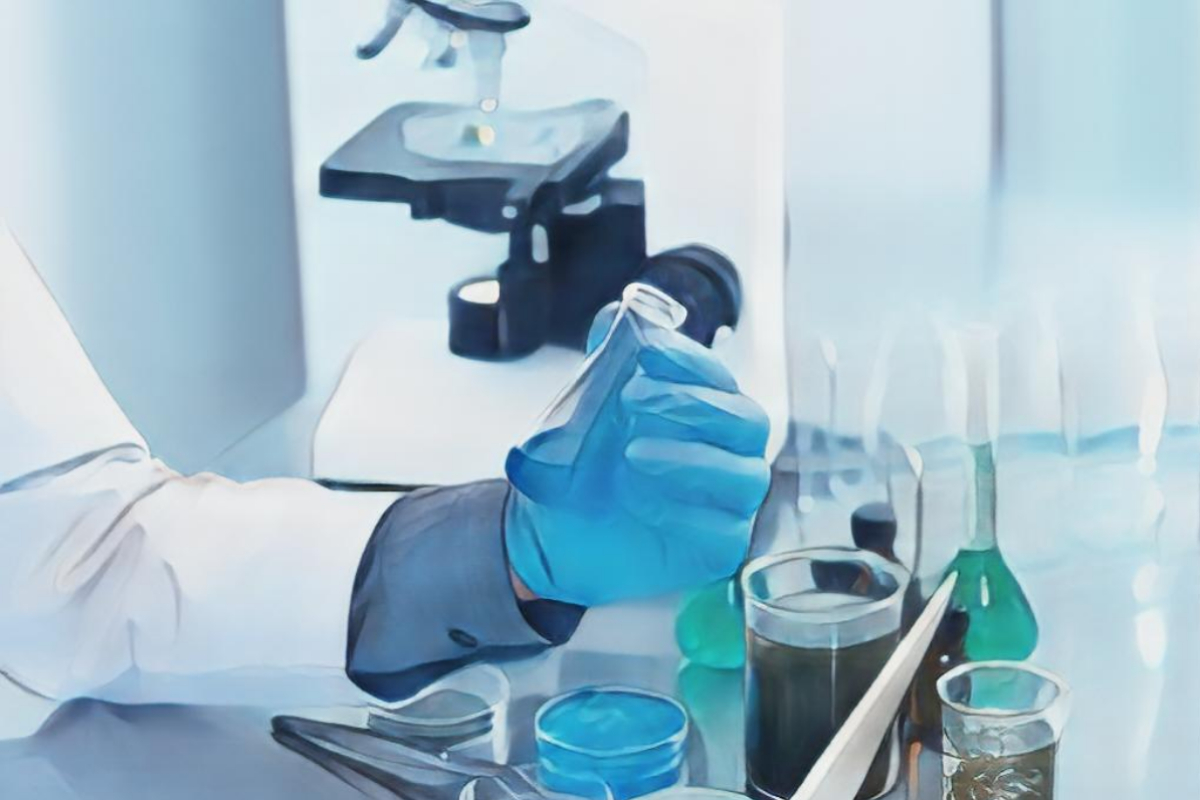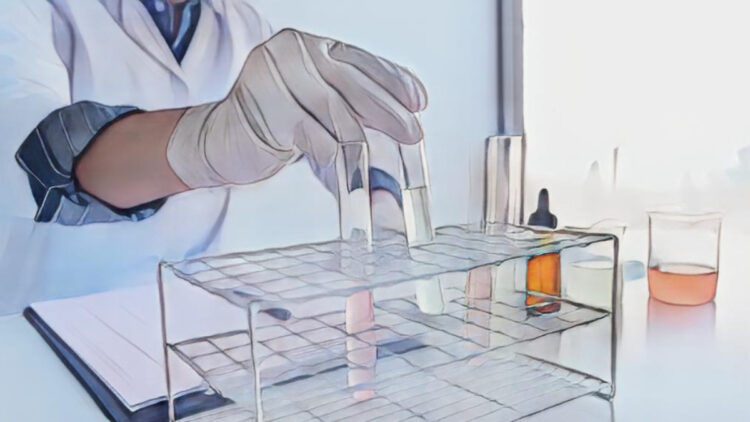WST News – The definition of chemistry often sounds daunting, but at its core, it’s about understanding the very fabric of our world. Imagine a vast, invisible playground where tiny particles dance, interact, and transform. This is chemistry—the study of matter and the changes it undergoes. But let’s break it down further. When you dive into chemistry, you’re delving into the composition, structure, properties, and changes of matter. It’s the science that explains why ice melts, how fireworks explode, and what makes up your morning cup of coffee.

Why Should You Care About the Definition of Chemistry?
Why Should You Care About Chemistry? Because it’s not just for scientists in white lab coats. It’s the foundation of everyday life. From the food you eat to the air you breathe, chemistry plays a crucial role. Understanding chemistry helps you make informed decisions about your health, environment, and even the products you buy. Whether you realize it or not, chemistry is a part of your daily routine, making it a subject that’s not just fascinating, but also deeply relevant to your life.
Core Components of Chemistry
To truly appreciate chemistry, you need to grasp its fundamental concepts. At the heart of chemistry are atoms and molecules. Atoms are the basic units of matter, and they combine to form molecules, which are the building blocks of everything around you. These tiny particles interact in various ways, leading to the chemical reactions that power your car, cook your food, and even keep you alive.
Magic of Chemical Reactions
Chemical reactions are where the magic happens in chemistry. These reactions involve the rearrangement of atoms to create new substances. When you strike a match, bake a cake, or even digest your food, you’re witnessing chemical reactions in action. But here’s the real power of chemistry-understanding these reactions allows you to predict and control changes in matter, giving you the power to create, innovate, and solve problems. That’s why chemistry is so powerful.
Branches of Chemistry: Exploring the Different Facets
Chemistry isn’t a one-size-fits-all science. It’s divided into several branches, each focusing on different aspects of matter and its interactions. Let’s explore the main branches of chemistry and what they entail.
Organic Chemistry: The Chemistry of Life
Organic chemistry is the study of carbon-containing compounds. These compounds are the basis of all life forms. Suppose you’ve wondered how your body processes food, how plants grow, or how medicines work. In that case, you’re delving into organic chemistry. This branch is essential for understanding biological processes and developing pharmaceuticals.
Inorganic Chemistry: Beyond the Carbon World
Inorganic chemistry, on the other hand, focuses on compounds that aren’t based on carbon. This includes metals, minerals, and salts. Inorganic chemistry is crucial for industries like manufacturing, mining, and electronics. It’s also key to understanding many natural processes, like how minerals form in the Earth’s crust.
Physical Chemistry: The Physics of Chemistry
Physical chemistry merges chemistry with physics. It studies how matter behaves on a molecular and atomic level and how chemical reactions occur. This branch is fundamental for developing new materials and technologies, from batteries to nanotechnology. It’s where you dive into the principles that govern chemical systems and their energy changes.
Analytical Chemistry: The Science of Detection
Analytical chemistry is the study of substances to determine their composition and the amount of each component present. This branch is vital in fields like forensics, environmental science, and manufacturing quality control. Whenever you hear about drug testing, pollution monitoring, or food safety, analytical chemistry is involved.
Biochemistry: The Intersection of Biology and Chemistry
Biochemistry explores the chemical processes within and related to living organisms. It bridges biology and chemistry, focusing on processes like metabolism, enzyme function, and genetic coding. Biochemistry is essential for advancing medicine, understanding diseases, and developing new treatments.
Real-World Applications of Chemistry
Chemistry isn’t confined to laboratories. Its principles are applied in countless industries and everyday scenarios, each more intriguing and inspiring than the last. Let’s look at some real-world applications of chemistry that impact your life and the world around you, from medicine and healthcare to environmental protection, food and agriculture, and energy solutions.
Role of Chemistry in Medicine and Healthcare
Chemistry is the backbone of the pharmaceutical industry. Developing new drugs and treatments relies heavily on chemical principles. Understanding how different substances interact with the human body leads to medical breakthroughs, from antibiotics to cancer treatments.
Environmental Protection
Environmental chemistry focuses on understanding and mitigating the impact of human activities on the environment. This branch helps develop sustainable practices, manage pollution, and protect natural resources. It’s crucial for ensuring a healthy planet for future generations.
Food and Agriculture
Chemistry ensures that your food is safe, nutritious, and flavorful. It plays a role in everything from food preservation to enhancing crop yields. Understanding chemical interactions helps improve food quality and safety, benefiting both consumers and producers.
Energy Solutions
From fossil fuels to renewable energy sources, chemistry is critical to developing and optimizing energy solutions. It helps create more efficient batteries, develop solar panels, and find alternative fuels. Chemistry drives innovations that make energy production more sustainable and less harmful to the environment.
Everyday Products
Chemistry develops and improves the products you use daily, from cleaning supplies to cosmetics. Understanding the chemical properties of materials leads to better, safer, and more effective products. Whether it’s the soap you use or the smartphone in your hand, chemistry plays a role.
(more WST News Science and IT Articles)
How Chemistry Shapes the Future
Chemistry is a dynamic and ever-evolving field. It’s at the forefront of addressing global challenges like climate change, health crises, and energy sustainability. By understanding and harnessing chemical principles, scientists and innovators can develop solutions that improve the quality of life and protect the planet.
Innovating for a Sustainable Future
Chemistry is not just about understanding the composition and properties of matter. It’s also about developing sustainable solutions. From creating biodegradable materials to improving recycling processes, chemistry is at the forefront of promoting a circular economy and reducing our environmental footprint.
Advancing Healthcare
In healthcare, chemistry continues to drive innovation. Chemical research is behind new diagnostic tools, personalized medicine, and advanced treatments. Understanding the molecular basis of diseases opens the door to targeted therapies and better health outcomes.
Enhancing Everyday Life
As technology advances, so does the application of chemistry to enhance everyday life. Intelligent materials, innovative packaging, and improved consumer products all rely on chemical principles. Chemistry makes your life more convenient, safe, and enjoyable.
Embracing the World of Chemistry
Now that you have a glimpse into the fascinating world of chemistry, you can see how integral it is to understanding and improving the world around you. Whether you’re interested in science, medicine, environmental protection, or simply curious about how things work, chemistry offers insights and solutions.
Dive Deeper into Chemistry
Don’t stop here if you’re intrigued by what you’ve learned. There are countless resources, from books to online courses, that can help you dive deeper into the definition of chemistry. Understanding chemistry satisfies curiosity and empowers you to make informed decisions and contribute to a better world.
Chemistry is more than a subject; it’s a lens through which you can explore and appreciate the intricate details of the universe. So, next time you encounter a chemical reaction in your daily life, you’ll better understand the science behind it. Embrace the journey of discovery that chemistry offers and see how it shapes the past, present, and future.
read more: Definition of Physics – What Exactly is It?































































